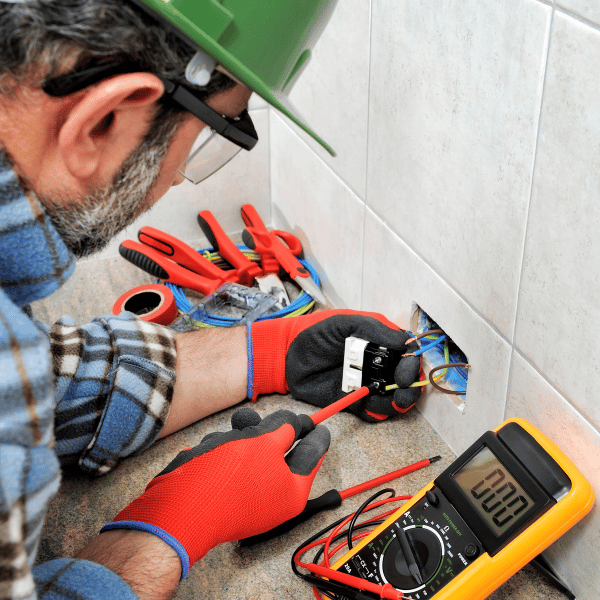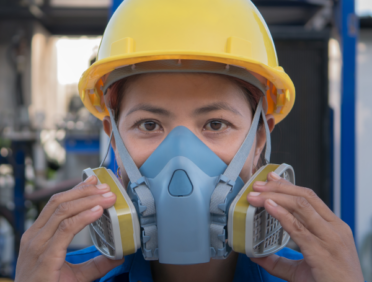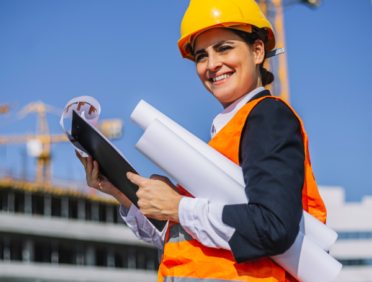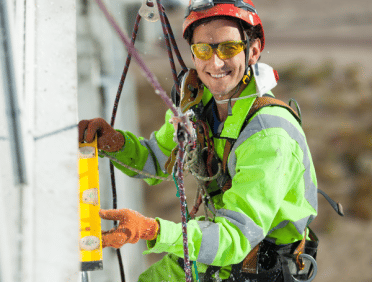Your home should be a safe space for you to live in, no matter if you own that home and pay a mortgage on it or if you live there as a rented tenant. Keeping safe and minimising any risks may be the same no matter the house that you live in, but the responsibility for ensuring that the regulations and guidance are followed for this safety does change.
In rented properties, electrical safety and gas safety is down to the landlord to manage, and the first step of being able to manage this has to be finding out more about both of these types of safety regulations as well as what you will be expected to do.
Something that this guide sets out to do.
What is Gas Safety?
Gas safety covers any gas appliances and items that may be found within a home or on commercial premises. The main gas appliances that are covered as a part of the gas safety regulations include ovens, cookers and boilers.
All of these appliances have to be installed properly in order to minimise their danger, and, as well as this; they should be properly maintained and looked after too.
Doing both of these things will help to reduce the risk of fires, explosions, gas leaks and also carbon monoxide poisoning too.
What is Electricity Safety?
Electricity can be incredibly dangerous when not handled in the right way. It not only can cause damage to property but it can also kill or severely injure people that come into contact with it too.
The good thing is that electrical safety is here to protect those who would be most at risk of injury from being hurt. It covers a wide range of simple precautions which help those who work with or near either electricity or electrical equipment.
Gas safety checks and who needs them?
As the name suggests, gas safety checks are there to ensure that the property that you live in is safe from any gas risks. These gas safety checks must be carried out on a regular basis to ensure that any gas appliances that you use are safe to be used and won’t cause you any harm.
These gas safety checks are designed to inspect any gas appliances that can be found on a property. These include cookers, fires and boilers. The checks will ensure that they are not only safe but that they are efficient too.
Some of the main checks that will be carried out include the following:
- Checking the location of the item compared to where it is safe
- Ensuring that the appliance is under the right pressure when operating
- Checking for an adequate air supply
- Ensuring that both flues and chimneys are clear and can move fumes away from the inside of the property and into the outside
- General checks to ensure that the appliance is working as it should
Outlined in the Gas Safety Regulations of 1998 are the following types of premises that must have an up-to-date gas safety check. These are:
- Housing association properties
- Local authorities
- Landlords
- Hotels and B&BS
- Colleges
- Boarding Schools
- Hostels
Gas and electrical safety requirements for landlords
If you are a landlord, then you have the responsibility of ensuring that the tenants who live in the property are as safe as possible. Both from gas and an electrical point of view.
All landlords must, as a legal requirement, have a Gas Safety Certificate (also known as a CP12) for their gas appliances if they belong to you rather than the tenants of the house. These certificates should be renewed every 12 months to ensure that the appliances are still working in a way that is safe.
This certificate should be given to your tenants to ensure that they are aware that the property that they are living in is safe.
As of the 1st of June 2020, landlords were required to carry out what is known as an electrical installation condition report on any properties that they own that they let out. This inspection should, as a minimum, be carried out before the tenancy on the property starts and should then be carried out at intervals of no more than five years.
The report that is created should then be given to the tenants for their records.
It is important that gas appliance safety checks are only carried out by registered engineers. They are classed as gas safe and will have spent time training for this certification. This certification can be checked online before you bring them into the property.
Along with the checks for safety, a gas-safe engineer can also provide you and your tenants with any advice and tips to ensure that they are living in a way that is safe and will reduce the risk of hazards.
Gas appliance servicing
Gas appliances require regular servicing to ensure that they are working well and that they are safe. This should be booked for each year. For landlords, this is a legal requirement; however, for those who live in their own owned house, it is just something that is advised.
The type of things that will be included in a gas service will depend on the type of appliance that is being serviced. However, a typical gas appliance service will include the following:
- Review pressures and gas flows
- Checking all the seals to ensure they meet standards
- Ensure that the pipework is sound
- Check all the controls are working
- Test that electrical connections work
- Review all the key components
- Check flues and combustion release
Having these things checked once a year means that the gas appliances in your rental property are going to be safe for those who live there to use every single day and avoid any nasty surprises when the time comes for an overall check of the property.
Using a registered electrician
In order to have electrical work carried out in a rental property, you need to ensure that they are completed by a registered electrician. This is because they are fully qualified and have the right experience to enable them to do the work.
They are fully regulated and will always work to the required safety standards set out. A registered electrician will have their work assessed on a regular basis, which means that you know that they keep up to the high standards in the long term.
A registered electrician will also be insured, which gives you peace of mind that you are protected from the work that has been carried out on your property.
Not only this, but it is also worth noting that you can only choose a registered electrician for some electrical work, which means that registered electricians are always the way to go.
Gas Safe Register
The Gas Safe register is the gas registration body for the UK. Within the list, you will find all the engineers and overall businesses that are legally allowed to both install and work on any gas appliances in properties.
In order to be on this register, you will need to have your position appointed and approved by the Health and Safety Authority. Similar to how you may pass a test and then be approved to drive a car by the DVLA.
The reason that the Gas Safe register is there is to ensure that those who are living in a property, whether it is their own property or they are a tenant in a rental property, are safe from any risks that are associated with low-quality or un-safe gas works.
As well as approving those who carry out gas works in a safe way and making them a feature on their register, they also investigate reports of illegal gas works or works that are not to the standard they should be.
Once they have done this, the information that they have gathered is passed to the HSE, and this will then be reviewed for any legal steps to be taken.
Along with this, the Gas Safe registers run campaigns and training, which helps to raise awareness of the risks of illegal gas works and the problems that this can cause.
Gas and electricity safety certificates
It is important that rental properties have both gas and electricity safety certificates that tenants can keep for the records. This shows that the landlord has met their responsibility to keep tenants safe and to ensure that any electrical work that is carried out on the property is done so safely as well as that any gas appliances in the property are safe to use too.
British gas safety certificate
Also known as a CP12, a Gas Safety Certificate is there to ensure that any gas appliances in a rental property that are owned by the landlord are safe to be used. These certificates need to be renewed every 12 months, as this will give the tenant peace of mind that over the course of the year, the appliances that they use (including their all-important boiler) have continued to be safe to use.
Landlord Gas Safety Responsibilities
Landlords of properties are responsible for ensuring that the tenants that rent the property and call it their home are safe whilst they live there. The term landlord covers anyone who rents out a property, whether that is a property that is lived in all year round or one that is only a holiday home.
Your responsibilities as a landlord are set out by the Gas Safety Regulations of 1998, and it states that every piece of gas work that is carried out on the property is carried out by an engineer who is registered as being Gas Safe.
The first responsibility as a landlord is a gas safety check, these need to be carried out every 12 months and should only cover the appliances within your property that are owned by you, not those that are owned by the tenant.
Another responsibility of a landlord is to ensure that the Landlord’s Gas Safety Record is completed. This check should then be given to your tenants within 28 days of the check being carried out; this is covered by the law. For new tenants, it should be provided to them when they start their tenancy.
Landlords also need to make sure that all gas pipework, appliances, chimneys and flues are kept in a condition that is safe. Every appliance should have its own guidelines on how often a service is recommended.
Gas safety in rented homes
Whilst the responsibility of the gas safety checks lies with the landlord of your property, it has to be said that gas safety in rented homes should be something that tenants also think about. They need to report any instances where they think that a gas appliance is not working as it should to their landlord (or their agent should they rent through an agent). That way they can take action on it straightaway and keep them safe.
They should also treat appliances with care, which means that they will be in the best condition possible.
FAQs
When selling a house, do you need a gas certificate?
If you are selling your house to a new owner, then you do not need to supply an Electrical Installation Condition Report. However, if you do want to give them peace of mind that the house that they are buying is safe, then this is something that you can give them along with any other relevant paperwork.
How much does a gas safety check cost in the UK?
The cost of a gas safety check can vary in the UK. However, you should expect it to cost at least £80. This covers a property that has one boiler, one gas hob and one fireplace in most circumstances. You can add additional appliances to this, usually charged at around £10 each.
What happens if you don’t have a gas safety certificate?
If you do not have a gas safety certificate, then you will not be complying with the Gas Safety regulations. This is a serious criminal offence, and landlords who are unable to provide one when requested will be faced with unlimited fines and/or six months of imprisonment.
How often do landlords have to check electrics?
Electrics in rental property have to be checked at least every five years. This should be carried out by a qualified person who is able to carry out the inspection works.
How much is an electrical safety certificate in the UK?
The cost to obtain an Electrical Safety Certificate in an average-sized home in the UK is anywhere between £150 and £240.
Does all electrical work require a certificate?
Any electrical work that is carried out in a house is covered by Building Regulations. However, many of the minor electrical works that are carried out, such as like-for-like replacements or alterations to any existing circuits within the property will not require a certificate.
Is it a legal requirement to have an electrical certificate?
The simple answer to this is yes. It is a legal requirement for landlords to provide a valid electrical safety certificate for any rental property that they own and lease out. This needs to be renewed at least every 5 years, and it is the landlord’s responsibility to ensure that this is done.
Why is gas safety important?
Gas safety is important in a home because any gas appliances that are not properly installed or maintained pose a gas safety risk. There is a danger of fire, explosions and gas leaks. There is also a risk of carbon monoxide poisoning too.
What is a gas hazard?
A gas hazard is something that is related to gas being found in a property that is hazardous to health. The most common gas hazard has to be gas poisoning. The symptoms of this include fatigue, severe headaches, memory problems, loss of concentration, nausea and also suffocation.
Why is safety in gas important to us?
Gas can be incredibly hazardous to your health. Not only can it cause very serious injuries to the people that it impacts, but it can also be fatal. The main thing to remember with the majority of gas risks, is that they can be mitigated, simply by regularly testing the appliances and ensuring that they are maintained properly.
Can you sell a house with a failed EICR?
You can still sell your home with a failed or missing EICR. That said, you will be expected to provide some form of documentation that proves that your property is safe to be lived in.
Does a house survey cover electrics?
A house survey will not cover either electrical or gas safety within a house. They do look at whether or not the lights and the heating in a property will work as a part of their checks, however, this is simply performed by turning them on. They are not qualified as either an electrician or a gas engineer, which means that they are unable to test these things.
Can a property be transferred without an electrical compliance certificate?
No, a user cannot transfer their home without an electrical compliance certificate.
What are the electrical hazards?
Electricity can be very dangerous if not dealt with in the right way or in an appliance that is not properly maintained. There are a variety of different electrical hazards that can occur in a property.
This includes electrical shock and burns from touching live parts of the electrical circuit. Injury from exposure to arcing or perhaps even a fire due to faulty electrical work.
You may even find that an explosion could be caused by electrical apparatus in a home too.
What are the 5 types of gas hazard?
Gas can cause a number of hazards to those that come into contact with it. The 5 types of gas hazards are:
- Fire
- Toxic gas
- Asphyxiant gas
- Compressed gas
- Confined spaces and gas
Who is responsible for the gas safety certificate?
It is down to the landlord of a property to ensure that the gas safety certificate is up to date and has been carried out.
How long does a gas safety certificate last?
A gas safety certificate will only last 12 months, which means that you need to ensure that you have booked out for the next one to be carried out before it has run out.
Is a gas home safe?
So long as a property is properly maintained and there is adequate ventilation within the property a gas home safe.
Who needs an electrical safety certificate?
Landlords require an electrical safety certificate within any rental properties that they own and let out.
How long does a house electrical certificate last?
A house electrical certificate will last 5 years before the next one will need to be carried out.
How long does an electrical certificate last?
These certificates last for 5 years.
What electrical work can an unqualified person do?
Most electrical work should be carried out by someone who is qualified to do so. However, some minor repairs and maintenance can be carried out by someone who is not qualified. This includes like for like replacements, such as changing existing sockets, switches and ceiling pendants. It also covers replacing damaged cables.
What electrical work is not notifiable?
Any minor works do not need to be notified to local area building control. This includes extensions or alterations of existing circuits, as well as other like for like replacements.
Can I certify my own electrical work?
The answer to this is no, electrical work must be certified by a competent person who is registered within the self-certification scheme.
Who pays for electrical surveys?
Electrical surveys on properties will be paid for by the buyer of the property.
How often do you need an EICR certificate?
You need to ensure that an EICR certificate is repeated every five years, or whenever you change tenancy.
Do I need an EICR certificate?
EICR is required for the private rental sector as part of the Electrical Safety Standards Regulations 2020. Every tenancy should have a valid EICR that has been given a satisfactory rating.
To download a .pdf of this blog, please click here












